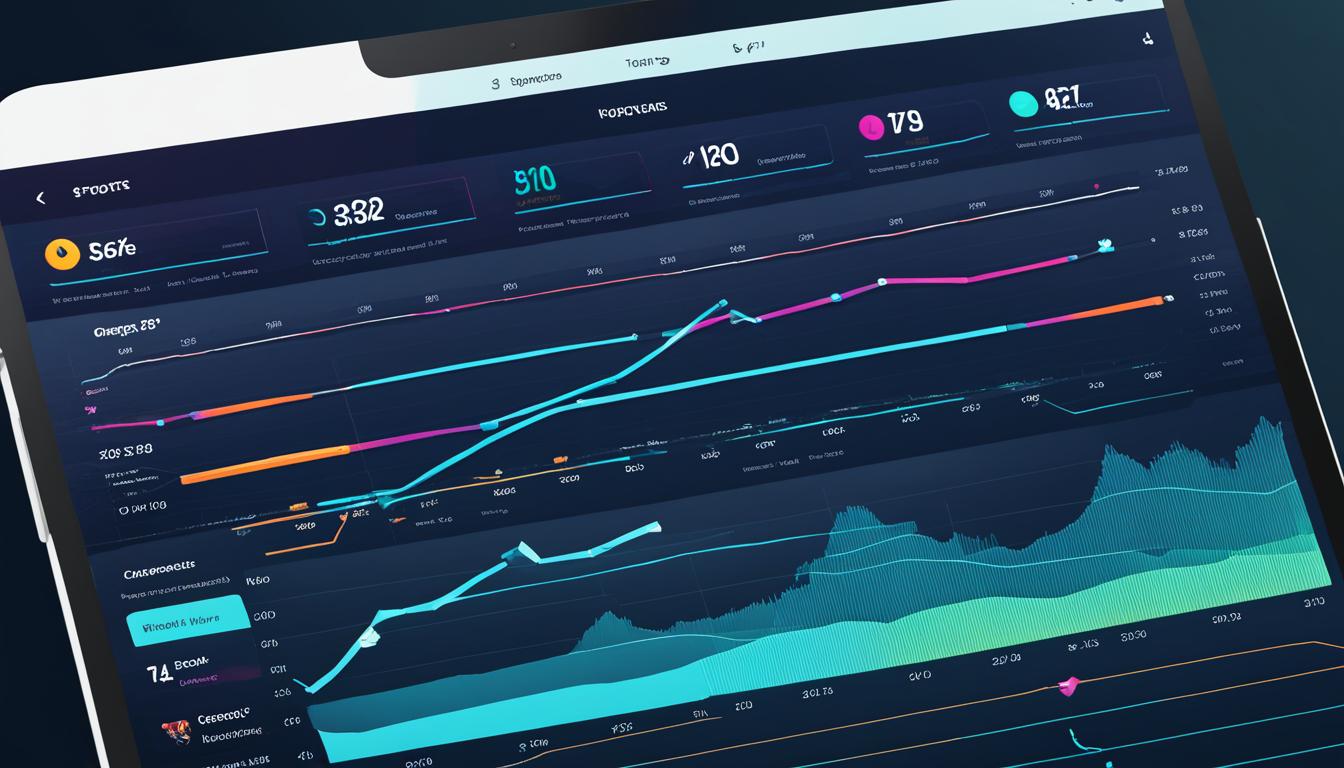That’s a staggering figure, and it reflects the high demand for software solutions in various industries. When it comes to the construction industry, CRM software plays a critical role in streamlining operations, managing customer relationships, and driving business growth. But with so many options available, how do you choose the best CRM software for the construction industry? Let’s explore the top CRM software solutions specifically tailored for contractors and construction businesses in 2024.
Telehealth
The telehealth sector has experienced remarkable growth, particularly in response to the Covid-19 pandemic. As healthcare professionals adapt to digital solutions, offering a SaaS telehealth solution has become increasingly crucial. With advanced features like appointment scheduling, prescription management, and secure video consultations, healthcare providers can effectively meet the needs of their patients from the comfort of their own homes.
Telehealth software allows clinicians to securely communicate with patients remotely, eliminating the need for in-person visits and reducing potential exposure to infectious diseases. By implementing a SaaS telehealth solution, healthcare providers can streamline their processes and enhance patient care.
One of the key features of telehealth software is appointment scheduling. This functionality enables patients to book appointments with their healthcare providers conveniently and efficiently. Moreover, healthcare professionals can manage their schedules effectively, ensuring optimal workflow and reducing appointment conflicts. This streamlined process improves patient experience and increases operational efficiency.
Prescription management is another valuable feature of telehealth software. With this functionality, healthcare providers can digitally prescribe medications and manage their patients’ prescriptions securely. The software tracks the prescribed medications, dosage instructions, and refill requirements, streamlining the prescription process and enhancing medication management.
Secure video consultations are a fundamental aspect of telehealth software, enabling healthcare providers to conduct virtual appointments with patients. These video consultations offer a safe and convenient alternative to in-person visits, especially for routine check-ups, follow-up appointments, and non-emergency medical consultations. Patients can receive timely healthcare services without the need for travel or physical presence.
With the continuous advancements in telehealth technology, it is evident that SaaS telehealth solutions play a vital role in modern healthcare delivery. By incorporating telehealth software into their practices, healthcare professionals can provide efficient and accessible care to their patients, ensuring seamless appointment scheduling, effective prescription management, and secure video consultations.
Benefits of Telehealth:
- Convenient and flexible access to healthcare
- Reduced healthcare costs for patients
- Improved patient satisfaction and engagement
- Enhanced healthcare provider efficiency and workflow
- Greater accessibility for remote or rural patients
Marketing Automation
Marketing automation is a game-changer for small and medium-sized businesses (SMBs) looking to streamline their marketing efforts and drive results. With marketing automation software, you can efficiently manage and execute your marketing campaigns, saving time and resources.
One of the key benefits of marketing automation is its ability to provide a centralized system for all your marketing activities. Instead of juggling multiple tools and platforms, you can have everything in one place, making it easier to manage and monitor your campaigns.
Workflow automation is another essential feature of marketing automation software. It allows you to automate repetitive tasks, ensuring consistency and efficiency in your marketing operations. By automating tasks like email marketing, social media posting, and lead nurturing, you can focus on higher-value activities that drive growth.
Lead generation is a critical aspect of any marketing strategy, and marketing automation software can help you generate and capture leads effectively. From lead scoring and segmentation to personalized email campaigns and landing page creation, these tools provide robust lead generation capabilities to help you attract and convert prospects.
Analytics play a vital role in marketing decision-making, and marketing automation software offers comprehensive analytics features to track and measure your campaign performance. By analyzing key metrics and insights provided by these tools, you can optimize your marketing strategies and make data-driven decisions.
Customer relationship management (CRM) is an integral part of marketing automation software. The ability to manage and nurture customer relationships from one central platform ensures seamless communication and a personalized customer experience.
In summary, marketing automation software empowers SMBs with a centralized system for workflow automation, lead generation, analytics, and customer relationship management. With these tools, you can supercharge your marketing efforts, attract more leads, and drive business growth.
Customer Relationship Management (CRM)
Within the construction industry, the effective management and analysis of customer interactions are crucial for enhancing relationships and driving business growth. This is where Customer Relationship Management (CRM) software comes into play. With its comprehensive features, CRM software enables businesses to streamline contact management, lead management, sales and opportunity management, as well as customer service and support management.
Contact management functionality allows construction companies to maintain a centralized database of customer information, including contact details and communication history. This ensures that the right information is accessible to the right people at any given time, enabling personalized and efficient customer interactions.
Lead management is another vital aspect of CRM software. It helps construction businesses track and organize their leads, ensuring a systematic and organized approach to lead conversion. By utilizing lead management tools, companies can efficiently nurture and convert leads into customers, boosting their sales pipeline.
Furthermore, CRM software provides features for sales and opportunity management. It enables construction companies to track sales activities, forecast revenue, and manage their sales pipeline effectively. This facilitates better business decision-making, allowing companies to identify potential opportunities and allocate resources accordingly.
In construction, delivering exceptional customer service and support is essential for business success. CRM software offers dedicated modules for customer service and support management, enabling companies to efficiently handle customer queries, resolve issues, and provide timely support. By ensuring exceptional customer experiences, construction companies can build strong customer loyalty and secure repeat business.
Overall, CRM software is a vital tool for managing customer relationships, optimizing sales processes, and enhancing business performance in the construction industry. By leveraging its robust features, construction companies can effectively analyze customer interactions, drive customer engagement, and achieve long-term success.
Key Features of CRM Software
| Contact Management | Lead Management | Sales and Opportunity Management | Customer Service and Support Management |
|---|---|---|---|
| Centralized database of customer information | Lead tracking and organization | Sales activity tracking and revenue forecasting | Efficient handling of customer queries and support requests |
| Communication history and interaction tracking | Efficient lead nurturing and conversion | Effective management of sales pipeline | Timely resolution of customer issues |
| Personalized customer interactions | Lead scoring and prioritization | Identification of potential sales opportunities | Strong customer loyalty and satisfaction |
Content Management System (CMS)
A Content Management System (CMS) is an essential tool for businesses in the construction industry to effectively manage and publish digital content without requiring advanced technical knowledge. With a CMS, you can easily create, organize, and update your website content, ensuring seamless user experience and optimized performance.
One of the key advantages of using a CMS is the availability of pre-designed templates that allow you to create professional-looking websites without the need for coding skills. These templates not only save you time and effort but also ensure consistency and branding across your online presence.
Furthermore, a CMS provides robust content publishing and workflow features that enable you to efficiently manage the creation, editing, and scheduling of your content. This ensures that your website is always up-to-date and relevant, enhancing your online visibility and attracting more visitors.
In addition to content creation and management, a CMS also offers powerful media management capabilities. You can easily upload, organize, and display images, videos, and other media files, enhancing the visual appeal and engagement of your website.
Moreover, a CMS plays a crucial role in Search Engine Optimization (SEO). It provides built-in tools and features that enable you to optimize your content for higher search engine rankings. This includes options for meta tags, URL customization, XML sitemap generation, and more, ensuring that your website is easily discoverable by search engines and driving organic traffic.
To summarize, a Content Management System (CMS) is an indispensable tool for businesses in the construction industry, empowering them to effectively manage and publish their digital content. By leveraging the features of a CMS, such as templates, content publishing and workflow, media management, and SEO optimization, construction companies can enhance their online presence, attract more visitors, and drive business growth.
Key Features of a Content Management System (CMS)
| Feature | Description |
|---|---|
| Templates | Pre-designed website templates for easy and professional content creation. |
| Content Publishing and Workflow | Efficient management of content creation, editing, and scheduling. |
| Media Management | Upload, organize, and display images, videos, and other media files. |
| SEO Optimization | Tools and features to optimize content for higher search engine rankings. |
Social Media Management
Social media plays a crucial role in the marketing strategy of construction businesses. To effectively manage and optimize your social media presence, social media management software is essential. These tools streamline your marketing efforts across various social media channels, providing a centralized platform for content creation, curation, post scheduling, analytics, and key metrics monitoring.
With social media management software, you can easily create and curate engaging content that resonates with your target audience. Whether it’s sharing project updates, showcasing completed works, or highlighting industry trends, content creation tools help you deliver compelling posts that drive audience engagement.
Post scheduling features allow you to plan and schedule your social media posts in advance, ensuring a consistent and regular posting schedule. This not only saves you time but also helps you maintain a consistent brand presence and maximize the visibility of your content.
Analytics and key metrics monitoring features provide valuable insights into the performance of your social media campaigns. You can track metrics such as reach, engagement, click-through rates, and conversion rates, allowing you to measure the effectiveness of your social media efforts and make data-driven decisions to optimize your social media strategy.
By leveraging social media management software, you can enhance your construction business’s online presence, build brand awareness, engage with your target audience, and drive business growth through social media marketing.
Team Communication
Effective team communication is essential for construction projects. In order to enhance collaboration and coordination among team members, it is crucial to have reliable team communication software. This software provides features such as real-time messaging, video and audio conferencing, file sharing, and mobile accessibility.
Real-time messaging allows team members to communicate instantly, facilitating quick decision-making and problem-solving. Video conferencing enables face-to-face communication, even when team members are geographically dispersed, fostering a sense of connection and teamwork. File sharing simplifies the process of exchanging important documents, plans, and designs among team members, ensuring everyone has access to the latest information.
With the advancements in technology, team communication software offers mobile accessibility, allowing team members to stay connected and updated on the go. Whether it’s discussing project updates, resolving issues, or sharing ideas, having a reliable team communication tool enables seamless collaboration and boosts productivity.
Enterprise Resource Planning (ERP)
When it comes to managing and automating core business processes and functions in the construction industry, ERP software is the go-to solution. With its robust features and functionalities, ERP empowers construction businesses to streamline operations and drive efficiency.
Finance and Accounting
One of the key features of ERP software is its comprehensive finance and accounting module. This module enables construction companies to manage their finances effectively, including bookkeeping, invoicing, budgeting, and financial reporting. By centralizing financial data and automating financial processes, ERP software ensures accurate record-keeping and enhances financial decision-making.
Supply Chain Optimization
Efficient supply chain management is crucial for construction businesses. ERP software offers supply chain optimization capabilities that allow companies to streamline procurement, inventory management, and logistics. By optimizing the supply chain, construction companies can minimize costs, reduce lead times, and improve overall project delivery.
Inventory Visibility
With ERP software, construction businesses gain real-time visibility into their inventory levels, locations, and usage. This helps companies make informed decisions about material procurement and optimize inventory levels to avoid stockouts or excess inventory. By maintaining optimal inventory levels, construction companies can improve project timelines and minimize costs.
Procurement
ERP software simplifies the procurement process by automating purchase orders, invoices, and supplier management. Construction businesses can easily track orders, manage supplier relationships, and streamline the procure-to-pay cycle. By leveraging ERP capabilities, companies can achieve greater procurement efficiency and cost savings.
In summary, ERP software presents a comprehensive solution for construction businesses, offering finance and accounting capabilities, supply chain optimization, inventory visibility, and efficient procurement. By implementing ERP software, construction companies can achieve seamless integration of their business processes and drive operational excellence.
Video Creation and Editing
Video content has become an essential component of marketing strategies, captivating audiences and driving engagement. To effectively create and enhance videos, utilizing video creation and editing software is crucial. These powerful tools enable users to import and edit raw footage, images, and audio files with ease.
With video creation and editing software, you can take your videos to the next level by applying various effects, transitions, and enhancements. Whether you’re looking to trim, crop, or merge clips, these tools provide the necessary features for seamless video editing.
One of the standout features of video editing software is its extensive range of effects. Whether you’re aiming for a professional look or a creative touch, you can experiment with different effects such as filters, overlays, text animations, and color grading to make your videos visually stunning.
Moreover, video creation and editing software often comes equipped with pre-built templates and themes, allowing you to quickly create professional-looking videos without the need for extensive design skills. This can save you time and ensure consistency in your video branding.
Key Features of Video Creation and Editing Software
Project Management Software
The construction industry relies on efficient project management software to streamline operations and enhance collaboration. With the right tools, businesses can effectively plan, execute, and track projects, ensuring successful outcomes. Key features of project management software include task management, Gantt charts, collaboration tools, and integration with other business applications.
Task management allows teams to create, assign, and track tasks throughout the project lifecycle. This feature ensures that everyone is aware of their responsibilities, deadlines, and progress. With task management, project managers can easily allocate resources and prioritize tasks, ensuring smooth project execution.
Gantt charts provide a visual representation of project timelines, dependencies, and milestones. This feature allows users to easily plan and track project progress, making it easier to identify any bottlenecks or delays. Gantt charts help project managers allocate resources efficiently and ensure that projects stay on schedule.
Collaboration tools in project management software enable team members to work together seamlessly. These tools facilitate communication, file sharing, and document collaboration, helping to streamline project workflows and enhance productivity. Teams can share updates, exchange feedback, and make real-time decisions, fostering effective collaboration throughout the project lifecycle.
Integration with other business applications is another crucial aspect of project management software. Seamless integration with tools like CRM software, finance and accounting systems, and communication platforms allows for streamlined data flow and enables efficient cross-functional collaboration. This integration ensures that project teams have access to the necessary information and resources, improving overall project efficiency.
Overall, project management software plays a vital role in the success of construction projects. By leveraging task management, Gantt charts, collaboration tools, and integration capabilities, businesses can effectively plan, execute, and manage their projects, delivering high-quality results within timelines and budgets.
| Key Features | Description |
|---|---|
| Task Management | Allows creation, assignment, and tracking of tasks |
| Gantt Charts | Visualize project timelines, dependencies, and milestones |
| Collaboration Tools | Facilitate communication, file sharing, and document collaboration |
| Integration | Seamless integration with other business applications |
Finance and Accounting Software
When it comes to managing the financial aspects of your construction business, having reliable finance and accounting software is essential. These tools streamline financial management processes and ensure accurate record-keeping, giving you more time to focus on other critical aspects of your business. From bookkeeping to invoicing and budgeting, finance and accounting software simplifies complex tasks and improves overall efficiency.
The Benefits of Finance and Accounting Software
- Automated bookkeeping: Say goodbye to manual data entry and tedious paperwork. Finance and accounting software automate bookkeeping processes, making it easier to track income and expenses, reconcile accounts, and generate financial reports.
- Efficient invoicing: With invoicing features, you can create and send professional-looking invoices to clients, ensuring timely payments and better cash flow management. Some software even allows for automated invoice reminders and recurring billing.
- Streamlined budgeting: Effective budgeting is crucial for managing construction projects. Finance and accounting software provide tools to create budgets, monitor expenses, and track project costs, allowing for better financial planning and resource allocation.
Recommended Finance and Accounting Software
| Software | Key Features | Pricing |
|---|---|---|
| QuickBooks | Automated bookkeeping, invoicing, budgeting, financial reporting | Several pricing plans available, starting at $25/month |
| Xero | Easy-to-use interface, bank reconciliation, invoicing, expense tracking | Several pricing plans available, starting at $20/month |
| Wave | Free accounting software, invoicing, expense tracking, receipt scanning | Free, with optional paid add-ons |
| FreshBooks | Invoicing, time tracking, expense management, financial reporting | Several pricing plans available, starting at $15/month |
These are just a few examples of finance and accounting software options available for construction businesses. Each software offers unique features and pricing plans, so it’s important to choose one that aligns with your specific needs and budget.
Conclusion
When it comes to the construction industry, selecting the right CRM software and project management tools is paramount for success. These tools not only streamline operations but also enhance customer relationships, improve collaboration, and optimize project planning. It is essential to consider the specific needs of your business and prioritize features like telehealth solutions, marketing automation, and team collaboration when evaluating software options.
CRM software tailored for the construction industry offers functionalities like contact management, lead management, and customer service and support management. These features help construction businesses effectively manage and analyze interactions with customers and drive business growth. Additionally, construction project management software provides essential tools such as task management, Gantt charts, and collaboration features to ensure efficient project execution and coordination.
By leveraging CRM software for the construction industry and construction project management software, businesses can streamline their processes, improve productivity, and gain a competitive edge in the market. Investing in these tools allows for better customer relationship management, optimized project planning, and enhanced collaboration among team members. With the right software solutions, construction businesses can achieve their goals while delivering exceptional results to their clients.
FAQ
What is CRM software?
CRM software stands for Customer Relationship Management software. It is a technology platform that helps businesses in the construction industry manage and analyze their interactions with customers. It includes features like contact management, lead management, sales and opportunity management, and customer service and support management.
Why is CRM software important for construction companies?
CRM software is crucial for construction companies because it allows them to effectively manage and nurture their customer relationships. It helps businesses track and analyze customer interactions, streamline their sales processes, and improve customer service. By using CRM software, construction companies can enhance customer satisfaction, drive business growth, and increase profitability.
What are some of the best CRM software options for the construction industry?
Some of the best CRM software options specifically tailored for the construction industry in 2024 are: [List the software options here]
What are the key features to look for in CRM software for the construction industry?
When selecting CRM software for the construction industry, it is important to look for features like contact management, lead management, sales and opportunity management, customer service and support management, integration with other business applications, mobile accessibility, and reporting and analytics capabilities.
How does CRM software help in improving customer relationships?
CRM software helps in improving customer relationships by providing construction companies with a centralized system for managing and analyzing customer interactions. It allows businesses to better understand their customers, track their preferences and purchase history, and provide personalized and targeted marketing campaigns. CRM software also enables better customer service and support management, leading to enhanced customer satisfaction.
Is cloud-based CRM software suitable for the construction industry?
Yes, cloud-based CRM software is highly suitable for the construction industry. It offers the advantage of easy accessibility from anywhere, scalability to accommodate the growing needs of construction businesses, and data security through regular backups and updates. Cloud-based CRM software also eliminates the need for on-premises infrastructure and reduces IT maintenance costs.
How can construction companies benefit from CRM software?
Construction companies can benefit from CRM software in several ways. It helps them streamline their sales processes, improve customer service, track and manage customer interactions, target and nurture leads, analyze sales performance, and enhance overall business efficiency. With CRM software, construction companies can effectively manage their customer relationships, increase customer satisfaction, and drive business growth.









